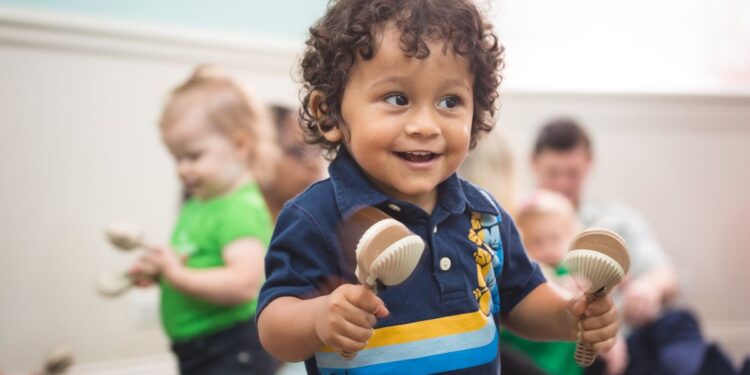The Impact of Parenting Styles on Children’s Development: Nurturing Care vs. Authoritarian Control
Parenting styles have a significant impact on children’s development and overall well-being. The way parents interact with their children, set boundaries, and provide support can shape their behavior, emotions, and cognitive abilities. In this article, we will explore the differences between nurturing care and authoritarian control as parenting styles and discuss their effects on children’s development.
Nurturing Care: Building a Foundation for Healthy Development
Nurturing care is characterized by warmth, empathy, and responsiveness towards children’s needs. Parents who practice nurturing care create a supportive and loving environment where children feel safe, valued, and encouraged to explore their surroundings. Nurturing parents are attuned to their children’s emotions, provide positive reinforcement, and offer guidance without being overly controlling.
Research has shown that children raised in nurturing environments tend to have higher self-esteem, better social skills, and stronger emotional resilience. They are more likely to form secure attachments with others, succeed academically, and exhibit prosocial behaviors. Nurturing care fosters a sense of trust and connection between parents and children, laying the foundation for healthy emotional development.
Key Characteristics of Nurturing Care:
- Warmth and empathy
- Responsiveness to children’s needs
- Positive reinforcement
- Encouragement of independence
- Open communication
Authoritarian Control: The Impact of Strict Rules and Discipline
Authoritarian control is characterized by strict rules, high expectations, and a focus on obedience and discipline. Parents who adopt an authoritarian style tend to be demanding, directive, and less responsive to their children’s emotional needs. They prioritize obedience and conformity over autonomy and independence, using punishment and criticism to enforce compliance.
Children raised in authoritarian households may exhibit higher levels of anxiety, low self-esteem, and difficulties in forming healthy relationships. They may struggle with self-regulation, lack confidence in their abilities, and have a fear of making mistakes. Authoritarian parenting can create a power imbalance between parents and children, leading to resentment, rebellion, and a lack of trust in the parent-child relationship.
Key Characteristics of Authoritarian Control:
- Strict rules and expectations
- Focus on obedience and compliance
- Use of punishment and criticism
- Lack of emotional support
- Emphasis on authority and control
The Impact of Parenting Styles on Children’s Development
The parenting style that parents adopt can have a lasting impact on children’s development and well-being. Nurturing care promotes healthy emotional, social, and cognitive development, while authoritarian control can have negative effects on children’s self-esteem, behavior, and mental health.
Children raised in nurturing environments are more likely to develop secure attachments, form positive relationships, and have a strong sense of self-worth. They are better equipped to navigate challenges, manage stress, and regulate their emotions. Nurturing parents provide a safe and supportive space for children to express themselves, learn from their experiences, and develop a sense of autonomy.
On the other hand, children raised in authoritarian households may struggle with feelings of inadequacy, fear of failure, and difficulties in expressing their emotions. They may have a heightened sense of anxiety, low self-confidence, and challenges in establishing healthy boundaries with others. Authoritarian parenting can hinder children’s ability to develop independence, self-regulation, and problem-solving skills.
Common Questions About Parenting Styles and Children’s Development
1. What is the best parenting style for children’s development?
There is no one-size-fits-all answer to this question, as each child is unique and may respond differently to various parenting styles. However, research has consistently shown that nurturing care promotes healthy development and positive outcomes for children. Parents who are warm, responsive, and emotionally available tend to raise children who are confident, resilient, and well-adjusted.
2. How can parents balance nurturing care and discipline?
Finding a balance between nurturing care and discipline is essential for promoting children’s development and well-being. Parents can set clear boundaries, provide consistent guidance, and offer support and encouragement to help children learn and grow. By fostering a positive and respectful relationship with their children, parents can create a nurturing environment that supports healthy emotional, social, and cognitive development.
3. What are the long-term effects of parenting styles on children?
The parenting style that parents adopt can have long-lasting effects on children’s behavior, emotions, and relationships. Children raised in nurturing environments tend to have better self-esteem, social skills, and mental health outcomes in adulthood. On the other hand, children raised in authoritarian households may struggle with issues such as low self-esteem, anxiety, and difficulties in forming healthy relationships later in life.
In conclusion, parenting styles play a crucial role in shaping children’s development and overall well-being. Nurturing care fosters positive outcomes, while authoritarian control can have negative effects on children’s emotional and social development. By providing a supportive and loving environment, parents can help their children thrive and reach their full potential.









































